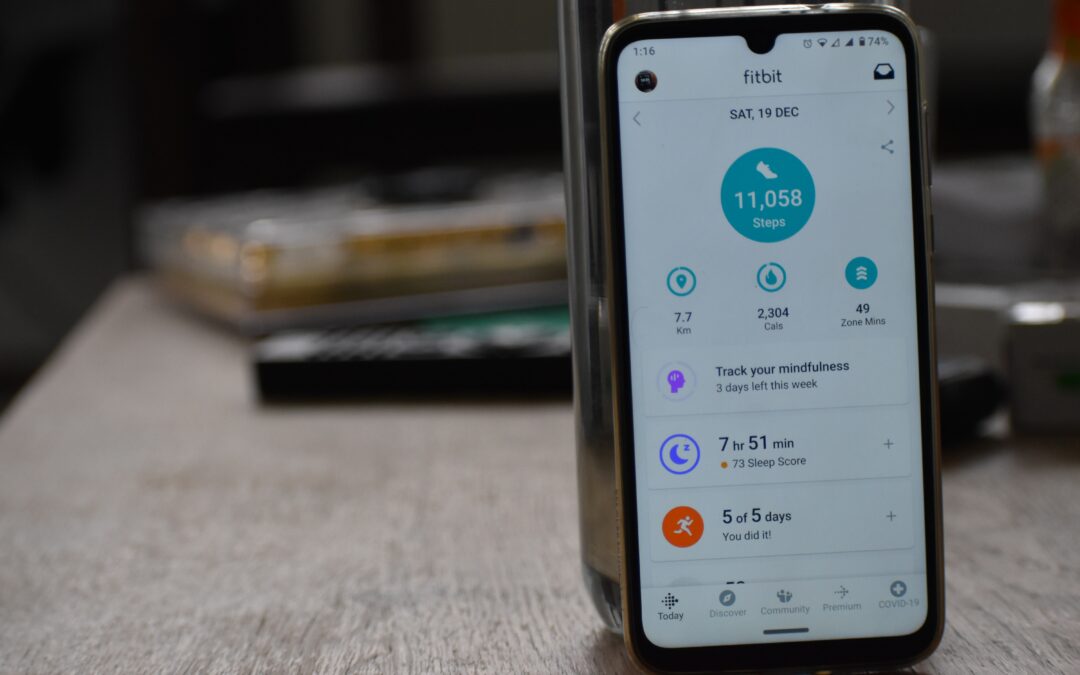According to research from Business of Apps, the global fitness app market grew from $680 million in 2016 to $5.35 billion in 2021. This astronomical growth was driven by a combination of factors, chief among them the increasing proliferation of smartphones, the growing popularity of fitness and wellness activities, and the popularity of real-time tracking of fitness data to help users keep on course with their fitness goals.
From weight loss to mindfulness, here are seven of the most popular health apps of 2023.
1. Future
For those in search of a truly tailored and personalized fitness app, Future is a standout choice. This app connects users with certified trainers who guide them through a customized workout plan meticulously designed to meet their individual needs. Users can choose their coach from a selection of experts, each with their own unique specialization. This enables members to find a coach whose expertise perfectly matches their fitness goals, ensuring effective guidance and support. In addition, users can also swap trainers and see what it is like working with someone else at no additional cost.
Each week, Future users receive a custom workout plan geared toward specific goals they have discussed with their trainer. Virtual fitness coaches assist users in tracking their progress while offering guidance to enhance every workout and refine their technique.
2. MyFitnessPal
MyFitnessPal is an excellent choice for those looking to improve their overall fitness. The app offers a robust activity and food database, easy-to-use tracking and logging tools, a library of workouts, and compatibility with various other different platforms.
MyFitnessPal has long been a leader in the health and fitness app market. It excels in tracking calorie intake, recording exercise statistics, and aiding users in aligning their habits with individual fitness objectives. Moreover, MyFitnessPal stands out with its customization options for each aspect of the app. It also boasts seamless integration with over 50 other devices and apps, allowing users to effortlessly synchronize all their workout data. It also offers a library of 50 workout routines for those who need a jumping-off point.
3. Nike Training Club
The Nike Training Club app is an easy-to-use interface that allows users to browse routines by workout type, equipment, or muscle group. The app offers a variety of different workouts and programs, catering to varying levels of fitness, making it appropriate for both novices and advanced athletes. Nike Training Club offers wellness and nutrition tips, too.
Delivering straightforward and effective workouts, this app offers substantial fitness routines tailored for limited spaces, making it a practical and apartment-friendly fitness solution.
4. Headspace
The COVID pandemic brought unprecedented attention to mental health, underscoring the necessity for individuals to prioritize not only their physical well-being but also their mental health.
A mindfulness and meditation app, Headspace encompasses an array of guided meditations that aid users in stress relief, improved sleep, and enhanced focus. Designed to accommodate individuals across all experience levels, from beginners to advanced practitioners, the app serves as a guiding companion on their mindfulness journey.
Headspace offers newcomers a 14-day free trial that allows them to explore the app’s offerings. If they find the experience beneficial, they can seamlessly transition to a paid plan and continue their mindfulness practice.
5. Google Fit
In terms of tracking overall health, including counting expended calories, gauging heart rate over time, and utilizing GPS to map walks and runs, it is hard to beat Google Fit. Not only is it the default fitness tracking option on Wear OS smartwatches, but Google Fit is also one of the most comprehensive solutions in the Android ecosystem.
The Google Fit app utilizes a distinctive ‘move minutes’ tracking system, aimed at measuring users’ total active minutes during the day. Additionally, it records ‘heart points’ to signify more intense exercises, such as jogging and brisk walking, among others.
6. Planet Fitness
Touted as one of the best free fitness apps available today, the Planet Fitness app was developed by one of the largest gym chains in North America, with 2,000 locations across the United States, as well as a handful of sites across Mexico and Canada.
Designed as a proficient workout-tracking tool, the Planet Fitness app provides an array of advantages to its members. These include a crowd meter feature that alerts users about their gym’s occupancy status, indicating busy times and periods of low capacity for optimal planning. The Planet Fitness app also incorporates a progress tracker that encourages regular exercise and provides pre-recorded guidance from trainers on weightlifting and cardio.
7. Noom
Rather than homing in on the user’s diet, Noom is a weight loss app that concentrates on the user’s relationship with food. Created in consultation with behavioral researchers and psychologists, Noom provides daily lessons to help users reach their fitness goals. Spanning anywhere between 5 and 15 minutes, depending on the user’s schedule, these lessons help users implement healthy lifestyle changes, making them more likely to stick in the long run.

